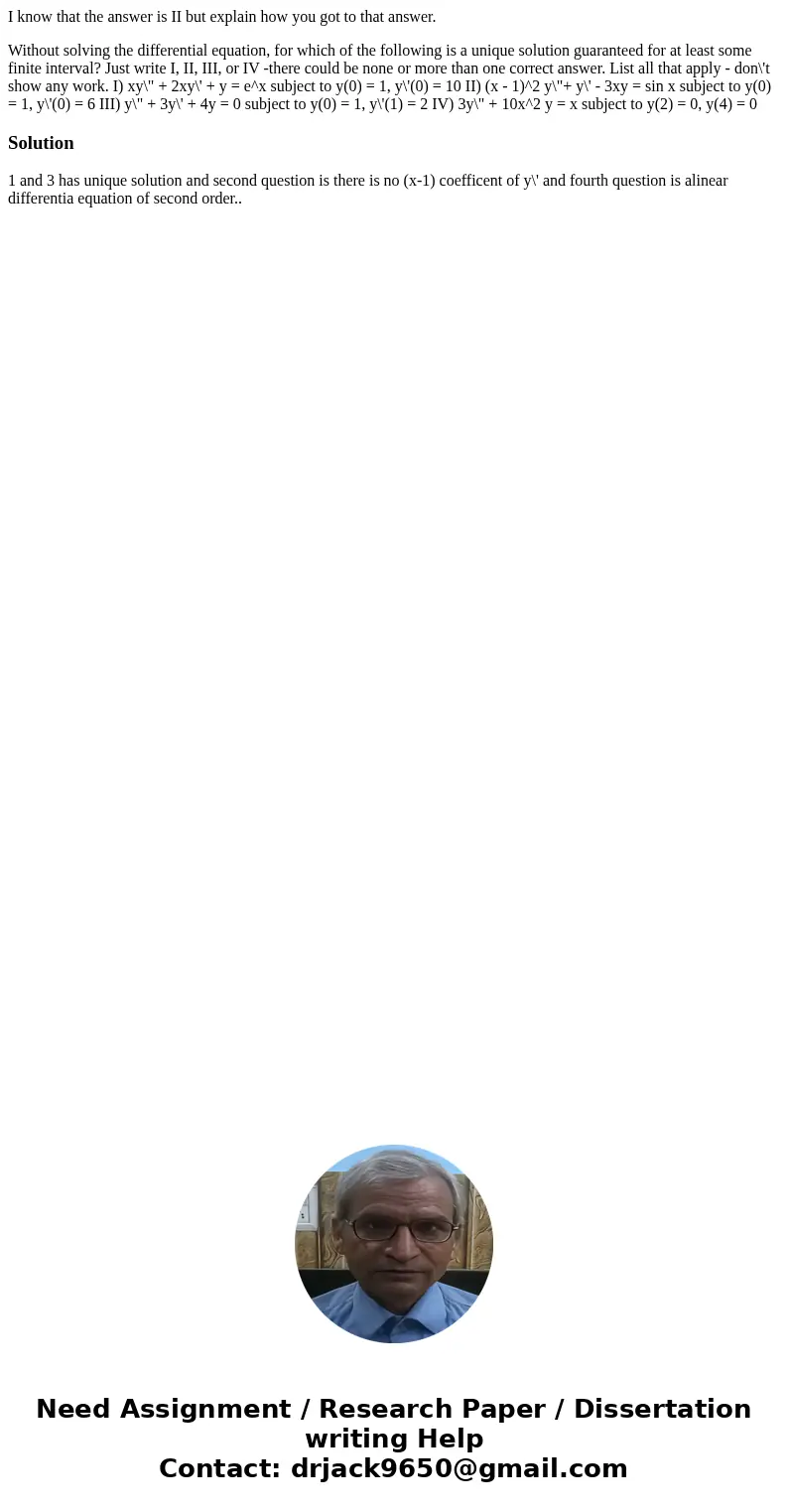I know that the answer is II but explain how you got to that
I know that the answer is II but explain how you got to that answer.
Without solving the differential equation, for which of the following is a unique solution guaranteed for at least some finite interval? Just write I, II, III, or IV -there could be none or more than one correct answer. List all that apply - don\'t show any work. I) xy\" + 2xy\' + y = e^x subject to y(0) = 1, y\'(0) = 10 II) (x - 1)^2 y\"+ y\' - 3xy = sin x subject to y(0) = 1, y\'(0) = 6 III) y\" + 3y\' + 4y = 0 subject to y(0) = 1, y\'(1) = 2 IV) 3y\" + 10x^2 y = x subject to y(2) = 0, y(4) = 0Solution
1 and 3 has unique solution and second question is there is no (x-1) coefficent of y\' and fourth question is alinear differentia equation of second order..

 Homework Sourse
Homework Sourse